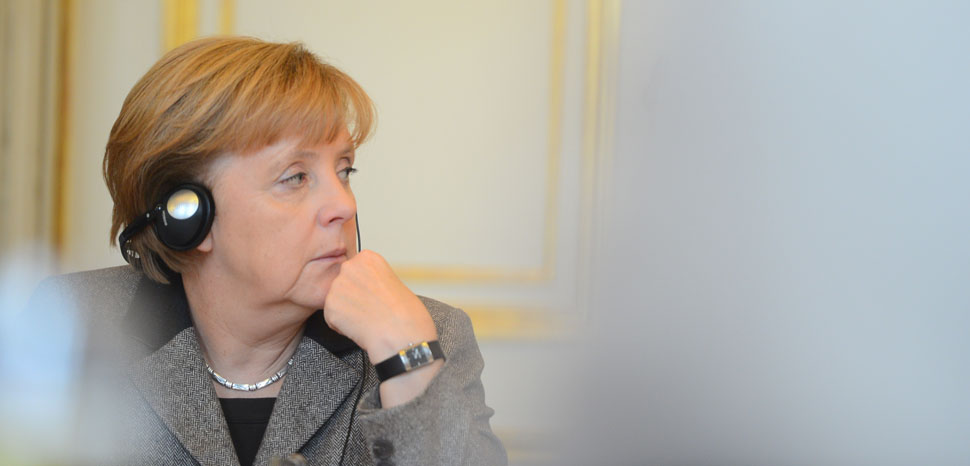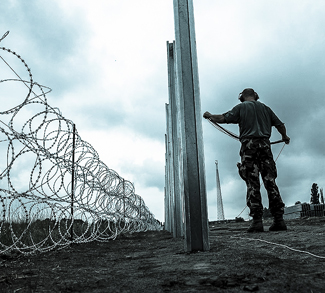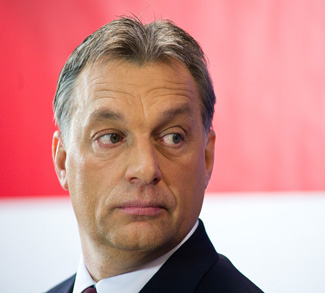It has been months since Germany’s September contest for the Bundestag, and still, government leaders have continued to tantalize the public at large with the slippery promise of a government being formed soon. While negotiations are taking place between Schulz’s Social Democrats and Merkel’s CDU, the two sides are still a long way off from forming an agreement. Indeed, judging by past statements from leaders in the SPD, it may not happen at all. And with support growing daily for the far-right AfD, it seems the end result of these talks might not only be the dissolution of Merkel’s precious coalition, but also, the political system in Germany itself.
Merkel is by far Germany’s most powerful leader since World War Two, but as the unfolding political dilemma shows, she’s not immune to threats to her power. The election in September of 2017, while providing a needed victorious outcome for the CDU, was disappointing to say the least. The center-right CDU garnered barely 33%, the party’s worst showing since 1949. While admittedly their most serious rival, the Social Democrats, didn’t do any better (they suffered their worst defeat since World War Two with only 20%), Merkel’s inability to rally the populace back into her camp significantly weakened her mandate to rule.
It’s easy to say that the election was a backlash based on immigration policy in Germany, seeing as how the country has faced the brunt of the migrant crisis for several years now. This backs the argument that the far-right’s success and rise as the third most powerful party in the Bundestag is a reaction to what many conservatives view as Merkel’s ‘lax’ immigration policies.
That would all be dandy, except it’s not the case.
A Brookings Institute study found that the allocation of refugees in Germany is distributed roughly evenly, with the main focus being in industrial areas such as Berlin and Hamburg. However, according to election results, Merkel’s party performed well in Berlin, and far-left parties such as Die Linke overperformed in urban areas. Not enough? Well, the CDU carried Frankfurt, Stuttgart, Dresden, and did well in Leipzig. The SPD won in Hamburg and Hanover. In fact, the only cities in the entire country that the AfD did do well in were Munich, and ironically, Nuremberg. Not only that, but Merkel ran farther to the right during the election. Reports from the German government show that last year, 158,000 were denied asylum over the course of a single week. Merkel did not back down on her claim that many asylum seekers had a fundamental right to safety, but her sidestep to the right was clear enough to stop much of the bleeding of her supporters to the Afd.
It’s hard for even Merkel’s contemporary critics to declare her time in power as a total negative.
It’s not about immigration as much as it is about Merkel’s ongoing presence, and how she’s tied to the status quo. Despite her attempts to stop the bleeding, Merkel still lost support to the far-right; but that’s not to say their victory was won at the hands of Merkel’s detractors. The AfD also brought many young and previously inactive citizens to the ballot box, signaling there’s something deeper to this issue then the migrant crisis. As big as the story might continue to be, first-time voters don’t vote for a party based on such a partisan issue. They are non-voters because of partisan issues. The viciousness and pettiness of politics is unattractive to them, and this is practically a description of the political personas that characterize the refugee debate.
These voters come to the polls when it’s time for change, or at least an attempt at it. Obama’s historic numbers in the United States during the 2008 election was not only based on his policies, but the fact he was different. The same with Macron in France, and Trudeau in Canada. It’s not a “screw it” mentality as much as it is a “we’re gonna get screwed if we don’t do something” one. And yes, with Trump in America during the 2016 election, traces of this electoral phenomenon can be found too. It wasn’t really about immigration either that attracted many to his side of the spectrum, but the fact that he was different, that change was needed.
With almost 13 years in power, an economy brought back to life, a revolutionized energy sector, and a diplomatic stranglehold on the EU, Germany is arguably in the best place it’s ever been in. But Germany’s political stability relies on Merkel finally handing off the baton. It’s time for Merkel to go.
It’s hard for even Merkel’s contemporary critics to declare her time in power as a total negative. Part of her appeal in governance was her ability to inspire those across the aisle, either because of her likable personality, or most likely, because of her impressive approval rating. She ended mandatory conscription, instituted Elterngeld (essentially maternity pay), oversaw a rise in the minimum wage, not to mention she gave the go-ahead for the victorious vote on legalizing gay marriage.
But even the accomplishments of a popular leader will fade when the democratic process begins to pressure him/her to face the inevitable conclusion of their system of government: retirement. Merkel is still well-liked, but disappointing approval ratings are a sign of her lackluster popularity. Citizens like her because, well, there really isn’t anyone else to like in the field of competitors.
If Merkel persists on holding onto power, it will only serve to deepen the divide and pose as a recruitment tool for dangerous factions in the German political system. While there is a chance the coalition talks may succeed, indeed, that may only seal her fate by providing an enduring foe in Berlin for this new populist wave to rally against. Remember: a coalition between the SPD and CDU would legitimatize the AfD, as they would then become the official opposition party.
The best course for action, if the aim is to keep the centrist/neo-liberal mandate in Germany intact, would be Merkel’s resignation and appointment of a new CDU leader, perhaps Jens Spahn. Why? If the strategy was applied properly, it would leech support from the AfD and smaller parties, and the CDU could retain its hold on power. Or, as a response to the CDU acknowledging a more right-wing approach, the SPD could move to the center and take hold of power. Either way, Germany’s political system is spared a populist uprising.
Acknowledging the will of people, even if it’s just to the extent so as to not wreak havoc upon the positive elements of a system, is always preferable to holding onto power for too long. Weaken the blow or else it will kill you. In the end, Merkel has undeniably brought Germany back onto the world stage as a respected power. The question now becomes: How does she save that legacy?
The opinions, beliefs, and viewpoints expressed by the authors are theirs alone and don’t reflect any official position of Geopoliticalmonitor.com.



